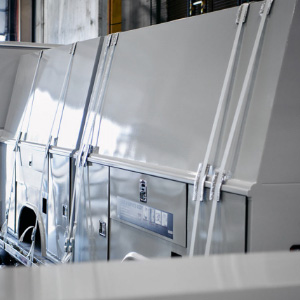As the concern for protecting the environment continues to grow, electric vehicles are becoming an increasingly popular alternative to gas- and diesel-powered models. The movement toward electric power extends beyond private passenger cars, however. Many companies in industries such as utilities, HVAC, oil and gas, and construction are exploring whether an electric truck fleet is a viable option for their field service technicians. In this post, we’ll review the benefits and disadvantages of electric service vehicles.
Electric Fleet Trucks: The Pros
An electric truck fleet offers a number of advantages:
- Lower fuel costs: You can power trucks with electricity at a fraction of the cost of gasoline or diesel. The substantial savings can have a significant impact on your company’s bottom line.
- Decreased maintenance: Electric fleet management is relatively simple when it comes to preventive maintenance. An electric motor has fewer moving parts than an internal combustion engine and there are no fluids to monitor and refill. You can lower your fleet maintenance costs by 50 percent or more by converting to electric.
- Meeting sustainability requirements: As companies face increasingly stringent environmental requirements, electric trucks ensure compliance with emissions standards. They also help organizations position themselves as “eco-friendly,” which can have positive public relations benefits.
- Increased employee satisfaction: Many drivers prefer electric trucks because of the smoother, quieter ride and not having to inhale exhaust fumes all day long. This can help you keep your best drivers from seeking other job opportunities.
Electric Fleet Trucks: The Cons
There are also several disadvantages to switching to an electric truck fleet:
- Limited range: Electric trucks do not have the range of their diesel and gasoline-powered counterparts. The batteries require frequent recharging, which can make long-distance trips impractical for some business operations.
- Inconvenience: With a gas or diesel truck, the driver only needs to pull into a service station or truck stop for a quick refueling. On the other hand, an electric battery can take several hours to recharge. The lack of charging stations also poses a challenge during longer trips.
- Upfront purchasing costs: Electric trucks are typically much more expensive than gas or diesel vehicles. Some companies will find them cost-prohibitive to buy, even though they may provide a better long-term return on their investment.
When Does It Make Sense to Switch to an Electric Truck Fleet?
Electric fleet trucks can meet the needs of companies where drivers travel relatively short routes — usually between 50 and 100 miles per day. The driver can then return the vehicle to the facility for overnight recharging. They’re also a good choice for organizations that have made the commitment to “going green” in every phase of their operation.
Reading Truck Body Can Meet Your Truck Equipment Needs
Whether you operate an internal combustion engine or electric truck fleet, Reading Truck Body can provide the ideal service body for your vehicles — and we have more than 60 years of truck equipment industry expertise. Contact a distributor near you or reach us online to learn more.




